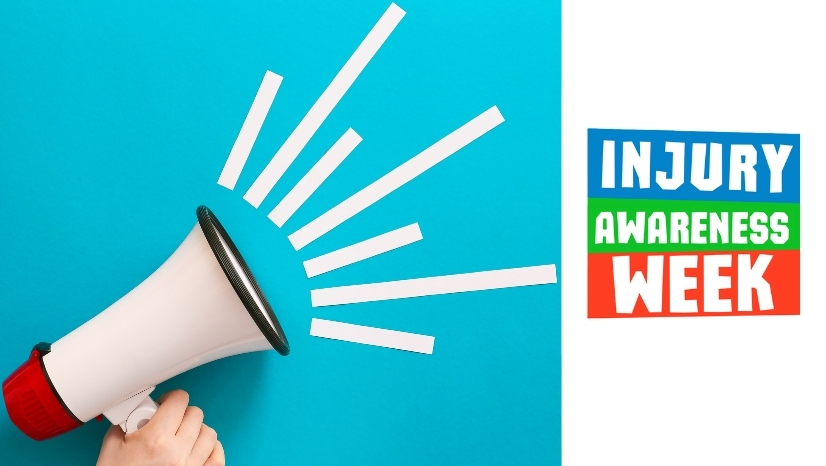

Express Solicitors is supporting Injury Awareness Week, a public awareness campaign organised by the Association of Personal Injury Lawyers (APIL), a not-for-profit organisation dedicated to helping people who have been injured.
The week aims to promote a better understanding of personal injury and the devasting impact injuries can have on people’s lives. It challenges harmful stereotypes, advocates for improved standards and highlights the importance of access to legal support in helping individuals rebuild their lives.
Tanzeela Aslam, Head of Clinical Negligence at Express Solicitors, has been a member of APIL since 2011 and an accredited Senior Litigator since 2012. To mark the week, Tanzeela reflects on this year’s theme, shares with us the vital work APIL does to campaign for change and explores what more needs to be done to support injured people.
My role at APIL
APIL is on a mission to promote justice for those harmed by negligence. I am delighted to support their work as both a member and the coordinator of the Special Interest Group. This group brings together like-minded industry professionals who share the view that we can make a difference by exchanging ideas and working together to support APIL’s campaigns.
Why is Injury Awareness Week so important?
One of the reasons I admire APIL so much, is the belief that only by working collectively and campaigning for improvements in safety can we drive meaningful policy change. Supporting the campaign strengthens our collective voice, which can only benefit injured people and their families.
Weeks like this get people talking. Most do not think about what it means to be injured until it happens to them. Yet anyone can be a victim of negligence and suffer a needless injury, so we should all care and be aware of its potentially life-changing effects. Awareness is vital and this week will hopefully shine a spotlight on the issue.
Bodily integrity
This year’s theme focuses on the loss of bodily integrity. It is a feeling experienced by anyone injured through someone else’s negligence. You are not just dealing with the pain of the injury, the loss of function or the financial impact, you are also facing a profound sense of violation. Even when an individual appears to have recovered, their sense of bodily integrity can still be compromised. They may face having their lives set back, careers put on hold and relationships with friends and family members permanently changed.
APIL describes bodily integrity as a fundamental human right, you should have authority over what happens to your own body. The theme places the person at the centre of the conversation. It reminds us that injury is not just an inconvenience or a statistic, it changes lives.
APIL’s campaign Rebuilding Shattered Lives shows the people behind the injury. It powerfully demonstrates the impact negligence can have, but also shows us that there is hope – and that a brighter future is possible with the right support.
By focusing on bodily integrity, we are highlighting the profound and lasting impact injuries can have on an individual and calling for greater respect, accountability and action to reduce needless harm.
Putting people at the heart of the campaign
The headlines I often see in newspapers and the media refer to compensation for victims as a ‘windfall or a payout’. They fail to highlight that, in actual fact, every penny is accounted for with the sole aim of putting claimants as far as possible back to the position they were in before being needlessly injured and required to fund essential care, as well as aids and equipment to get the injured person through their day.
This year’s campaign will hopefully help to shift the narrative by focusing on the people who have been injured and their stories.
In our industry, it’s not just about achieving justice for individuals, but also educating society. Particularly in my area of expertise, medical negligence, more needs to be done to dispel the myths surrounding the claims culture and by highlighting avoidable mistakes, we can ensure that patient safety prevails. It is through this understanding and accountability that we can foster a safer healthcare environment for everyone.
Driving change
Injury Awareness Week should motivate us as a legal profession to redouble our efforts to support injured people and improve standards. It is a timely reminder of the importance of our work and the ongoing challenges faced by those affected by negligence.
Sadly, access to justice continues to be denied for many due to significant delays in the civil courts. I would urge the Ministry of Justice to address these backlogs as a matter of urgency. Our own statistics at Express show that the average time for multi-track cases to be heard fell by only 11 days, from 353 days in 2022/23 to 341 days in 2023/24. This is not sufficient progress.
At the same time, we are seeing continued lobbying by insurance companies to reduce their costs, set against the backdrop of proposed government reforms to clinical negligence claims. The focus should be on preventing harm in the first place, not on restricting access to justice.
By working together under APIL’s umbrella and through the Special Interest Group, I hope we can strengthen our collective voice and effectively lobby for the rights of injured individuals and their families.

